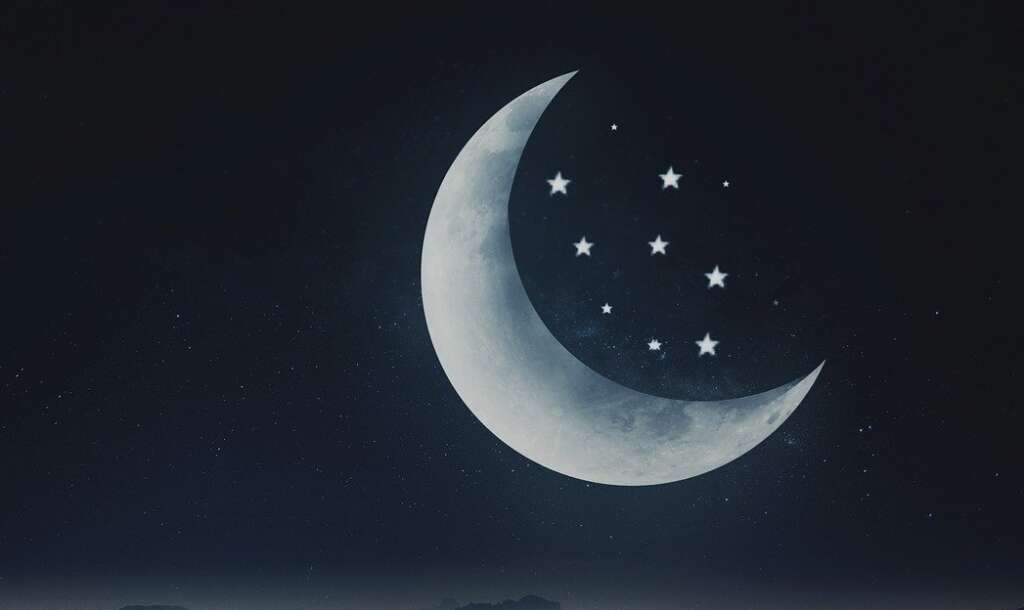“The moon is beautiful isn’t it?” is a phrase that transcends the barriers of language, culture, and time. The beauty of the moon has universally captivated the human imagination, leading to countless poems, songs, and stories dedicated to its ethereal charm. However, this phrase bears a special significance in Japanese culture, where it is perceived as a romantic declaration of love. This article aims to explore the deep-seated meanings and cultural connotations of “The moon is beautiful, isn’t it?”.

Table of Contents
- 1 Breaking Down the Beauty of the Moon
- 2 The Moon and Japanese Culture: A Tale of Love
- 3 The Art of Responding to “The Moon Is Beautiful, Isn’t It?”
- 4 The Moon and Pop Culture: A Celestial Trend
- 5 The Moon as a Universal Connector
- 6 Frequently Asked Questions about The Moon and It’s Beauty:
- 6.1 What does it mean when you say the moon is beautiful isn’t it?
- 6.2 What should I reply to the moon is beautiful isn’t it?
- 6.3 How do Japanese say the moon is beautiful isn’t it?
- 6.4 What does the moon mean in love?
- 6.5 Is the sunset beautiful isn’t it?
- 6.6 Is the sunset beautiful meaning?
- 6.7 What does it mean when someone calls you moon?
- 6.8 How do you respond to love you to The moon?
- 6.9 What does Tsuki wa mean?
- 6.10 What does Moon mean in Japan?
Breaking Down the Beauty of the Moon
The phrase “The moon is beautiful, isn’t it?” is a testament to the human fascination with the moon’s visual charm. It serves as a poetic acknowledgment of the moon’s emotional impact on us. It is a reflection of the profound connection we share with the moon—a connection that sparks feelings of awe, wonder, and romance.
The moon has always been a symbol of purity, calm, and mystery. Its radiant glow in the darkness of the night sky serves as a beacon of hope and tranquility. Its persistent presence in the heavens is a reminder of the enduring allure of nature’s artwork. It’s a way for us to say, “Hey, let’s all admire the moon together!” So, the next time you see the moon shining above, remember that saying, “The moon is beautiful, isn’t it?” is like giving a thumbs-up to the nighttime beauty we all share.
The Moon and Japanese Culture: A Tale of Love
In Japan, the phrase “tsuki ga kirei desu ne,” which translates to “The moon is beautiful, isn’t it?” holds a unique cultural significance. The phrase is an indirect, more poetic way of saying “I love you.” This indirect expression of love is deeply ingrained in Japanese culture, where it is often considered rude to directly state your feelings.
The use of this phrase as a declaration of love is attributed to the famous Japanese novelist Natsume Sōseki. According to popular anecdotes, Sōseki advised his students to translate the English phrase “I love you” as “tsuki ga kirei desu ne” as a more culturally appropriate expression in Japanese society.
The Art of Responding to “The Moon Is Beautiful, Isn’t It?”
Responding to “The moon is beautiful, isn’t it?” requires a delicate touch. It’s an opportunity to express your shared appreciation for the moon’s beauty, or to acknowledge the underlying romantic sentiment. Here are a few possible responses:
- Agreeing with Enthusiasm:
- “Absolutely! It’s so enchanting.”
- “I couldn’t agree more. It’s stunning tonight.”
- Sharing Your Perspective:
- “Definitely. I love how it lights up the sky.”
- “Yes, and it’s even more special with the stars around it.”
- Adding a Touch of Poetry:
- “Indeed, the moon’s beauty is a timeless delight.”
- “Oh, the moon’s radiance always leaves me in awe.”
- Expressing Emotion:
- “Oh, it’s breathtaking. Makes you appreciate the world.”
- “It really is beautiful. It soothes the soul, doesn’t it?”
- Creating Conversation:
- “You’re right. Do you know any moon legends from different cultures?”
- “Absolutely. Have you ever tried moon-gazing on a quiet night?”
The Moon and Pop Culture: A Celestial Trend
The phrase “The moon is beautiful, isn’t it?” has also journeyed into the realm of popular culture, particularly in anime and manga. Characters often use this phrase to express their romantic feelings indirectly, creating a poignant moment of emotional tension.
In recent years, the phrase has also found a home on social media platforms. The moon, with its serene and calming aura, has become a popular symbol among netizens. The lunar trend on social media is a testament to the universal appeal of the moon and the shared admiration for its beauty.
The Moon as a Universal Connector
Despite the cultural variations, the phrase “The moon is beautiful, isn’t it?” serves as a universal connector. It fosters a sense of unity among individuals, transcending language and cultural barriers. The moon, with its timeless allure, reminds us of our shared humanity and the captivating charm of the natural world.
In essence, “The moon is beautiful, isn’t it?” encapsulates a shared sentiment of marveling at the moon’s splendor. It’s a shared experience that transcends language and cultural barriers, reminding us of the extraordinary beauty that surrounds us.
Frequently Asked Questions about The Moon and It’s Beauty:
What does it mean when you say the moon is beautiful isn’t it?
When someone says, “The moon is beautiful, isn’t it?” they are expressing their admiration and appreciation for the moon’s appearance in the night sky. It’s a poetic way of sharing the wonder and awe that the moon’s radiance can evoke.
What should I reply to the moon is beautiful isn’t it?
Respond to this phrase with a warm smile and a tender “Yes, it truly is captivating,” or playfully whisper, “The moon pales in comparison to your radiance.” Let your heart speak the language of romance.
How do Japanese say the moon is beautiful isn’t it?
In Japanese, the phrase is expressed as “tsuki ga kirei desu ne,” which directly translates to “The moon is beautiful, isn’t it?” This phrase serves as a subtle and indirect way of expressing love in Japanese culture.
What does the moon mean in love?
In the realm of love, the moon often symbolizes emotions, longing, and the unattainable. Its radiant glow in the night sky serves as a beacon of hope and tranquility, often associated with romantic sentiments.
Is the sunset beautiful isn’t it?
Just like the moon, the sunset also holds a captivating charm. When someone says, “The sunset is beautiful, isn’t it?” they are appreciating the mesmerizing hues of the setting sun and the serene ambiance it creates.
Is the sunset beautiful meaning?
The phrase “The sunset is beautiful” expresses appreciation for the captivating beauty of the setting sun. The vibrant colors and tranquil ambiance of a sunset often evoke feelings of tranquility, peace, and wonder.
What does it mean when someone calls you moon?
If someone calls you their ‘moon,’ it is often a term of affection. The moon is considered a symbol of beauty, calmness, and inspiration, so being called someone’s ‘moon’ can signify that you are a source of light and happiness in their life.
How do you respond to love you to The moon?
Responding to “I love you to the moon” could be as simple as expressing the same sentiment with “I love you to the moon and back” or expressing your affection in your own unique way, such as “And I love you to the stars and beyond.”
What does Tsuki wa mean?
In Japanese, “Tsuki wa” means “The moon is.” It’s often used in sentences to refer to the moon and its state or appearance.
What does Moon mean in Japan?
In Japan, the moon, or “tsuki” in Japanese, holds significant cultural and symbolic importance. It’s a symbol of beauty, tranquility, and romantic love. It also plays a vital role in various Japanese traditions and festivals.
“The moon is beautiful isn’t it?” is a phrase that beautifully encapsulates the human connection with the natural world and our shared experiences of beauty and admiration. Whether used as an expression of love, a shared sentiment of admiration, or a poetic acknowledgment of nature’s charm, this phrase is a testament to our shared humanity and the universal allure of the moon.


